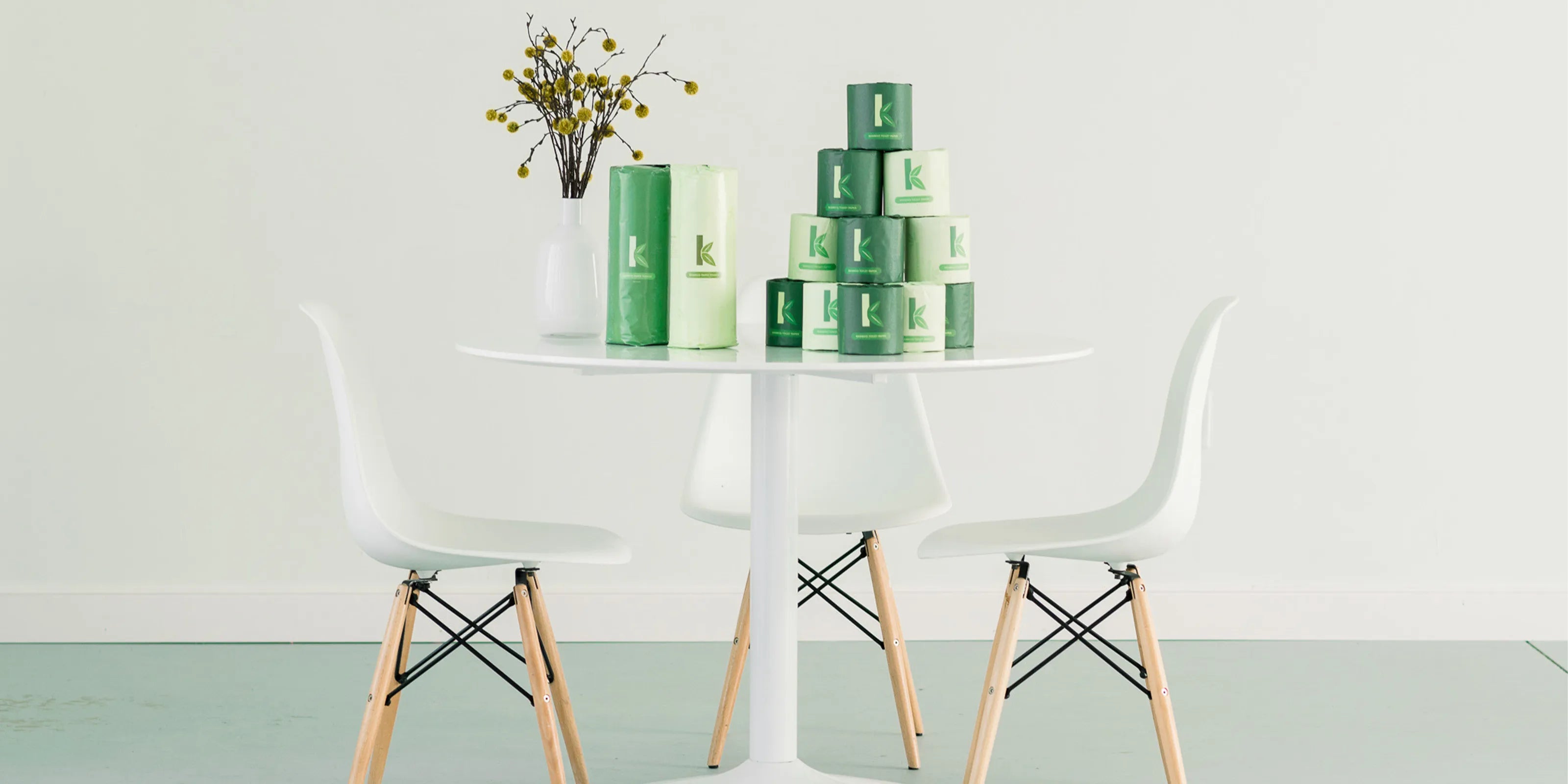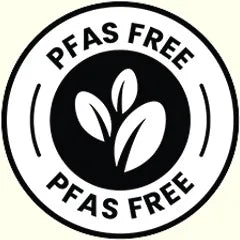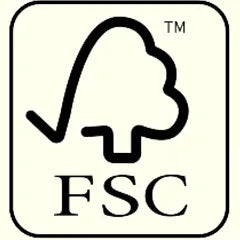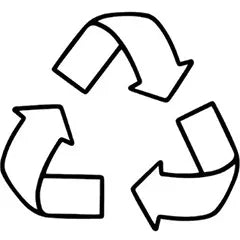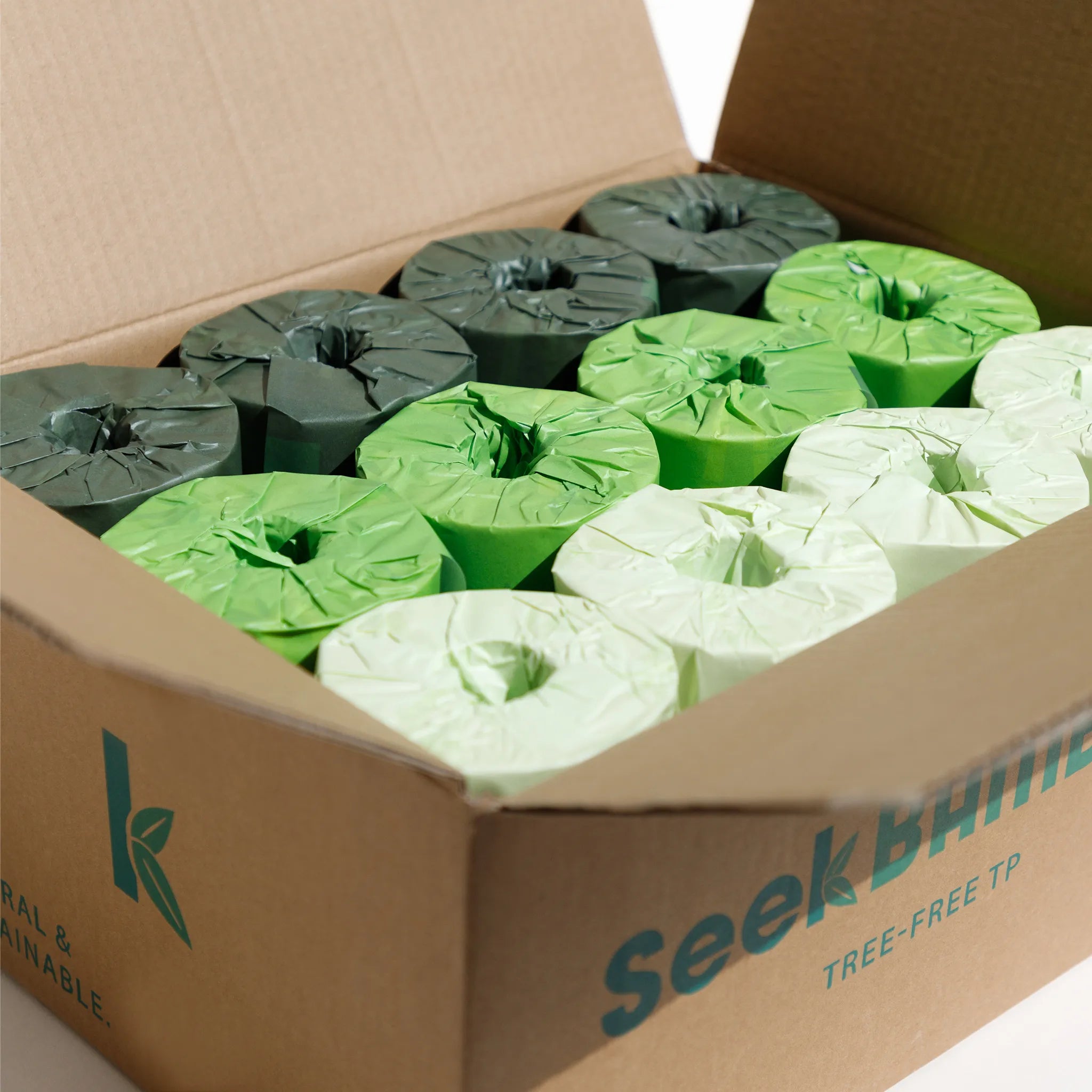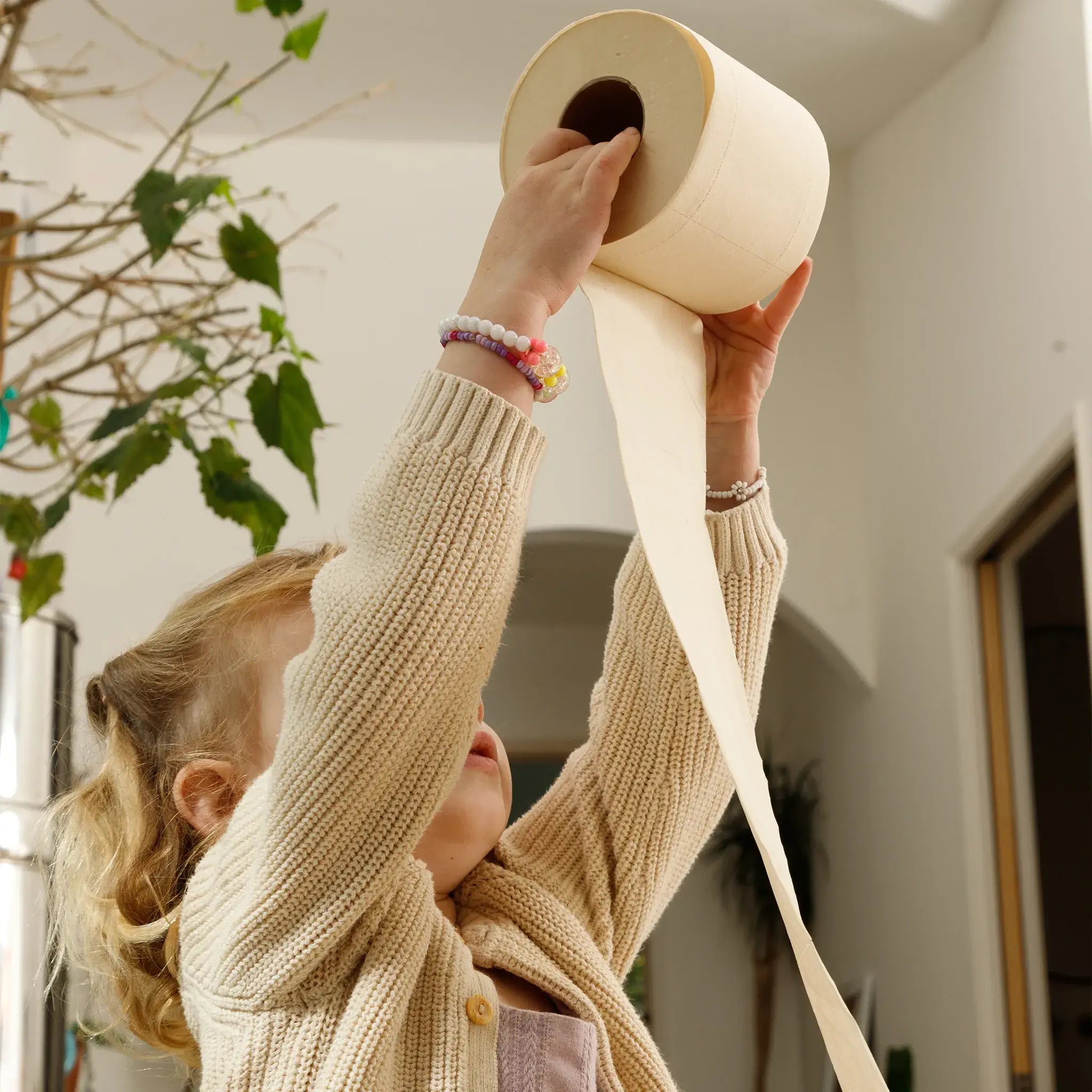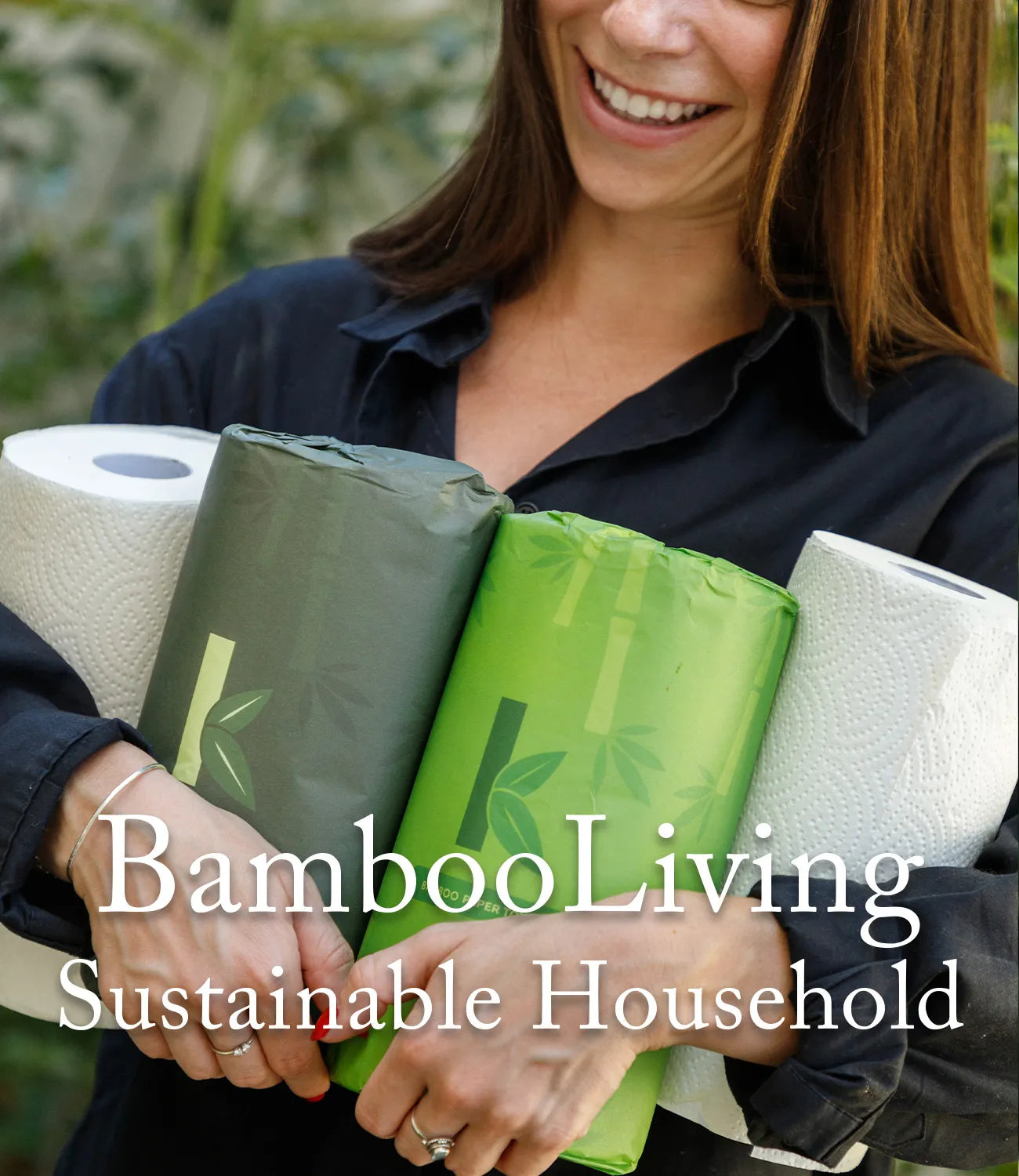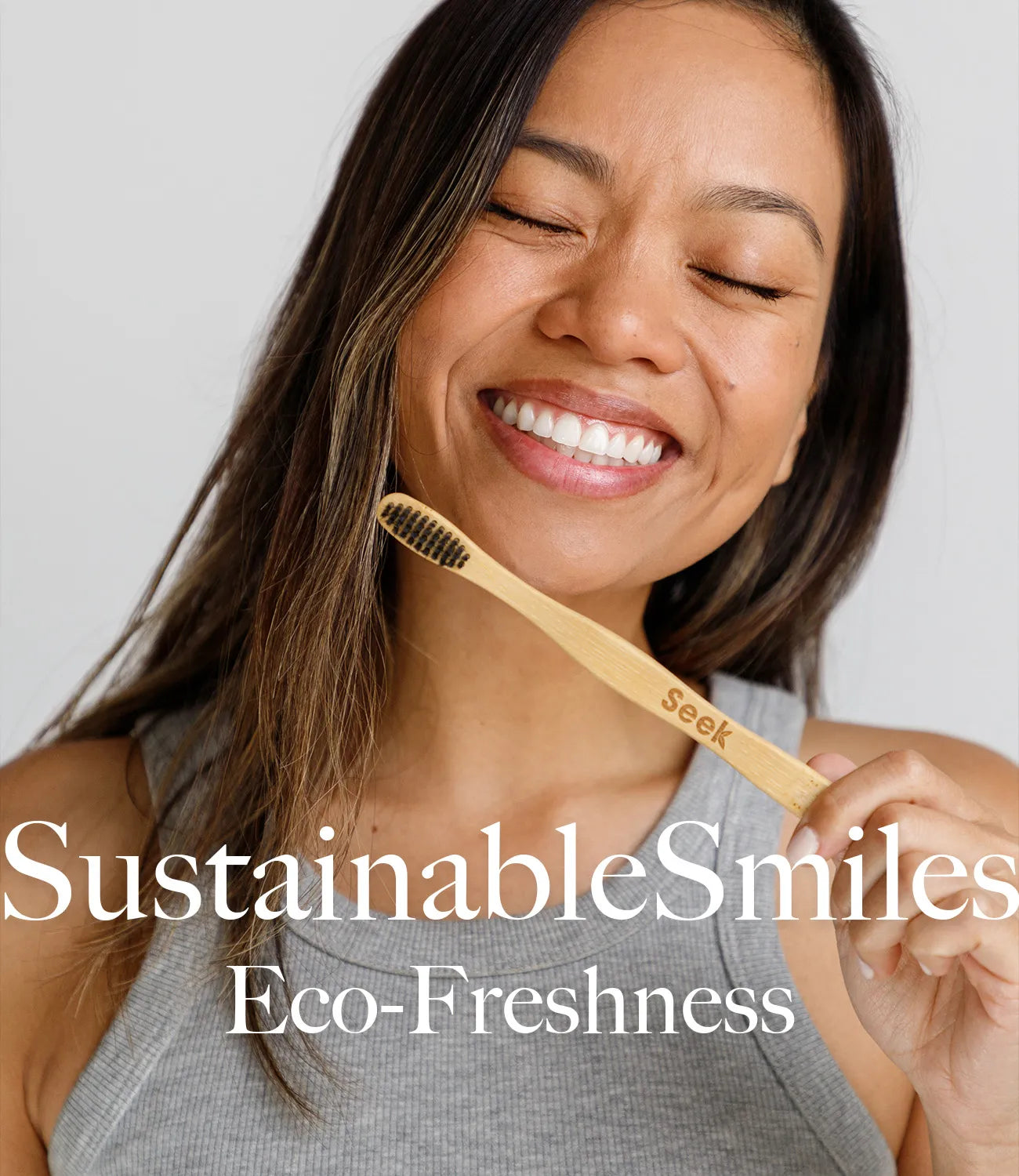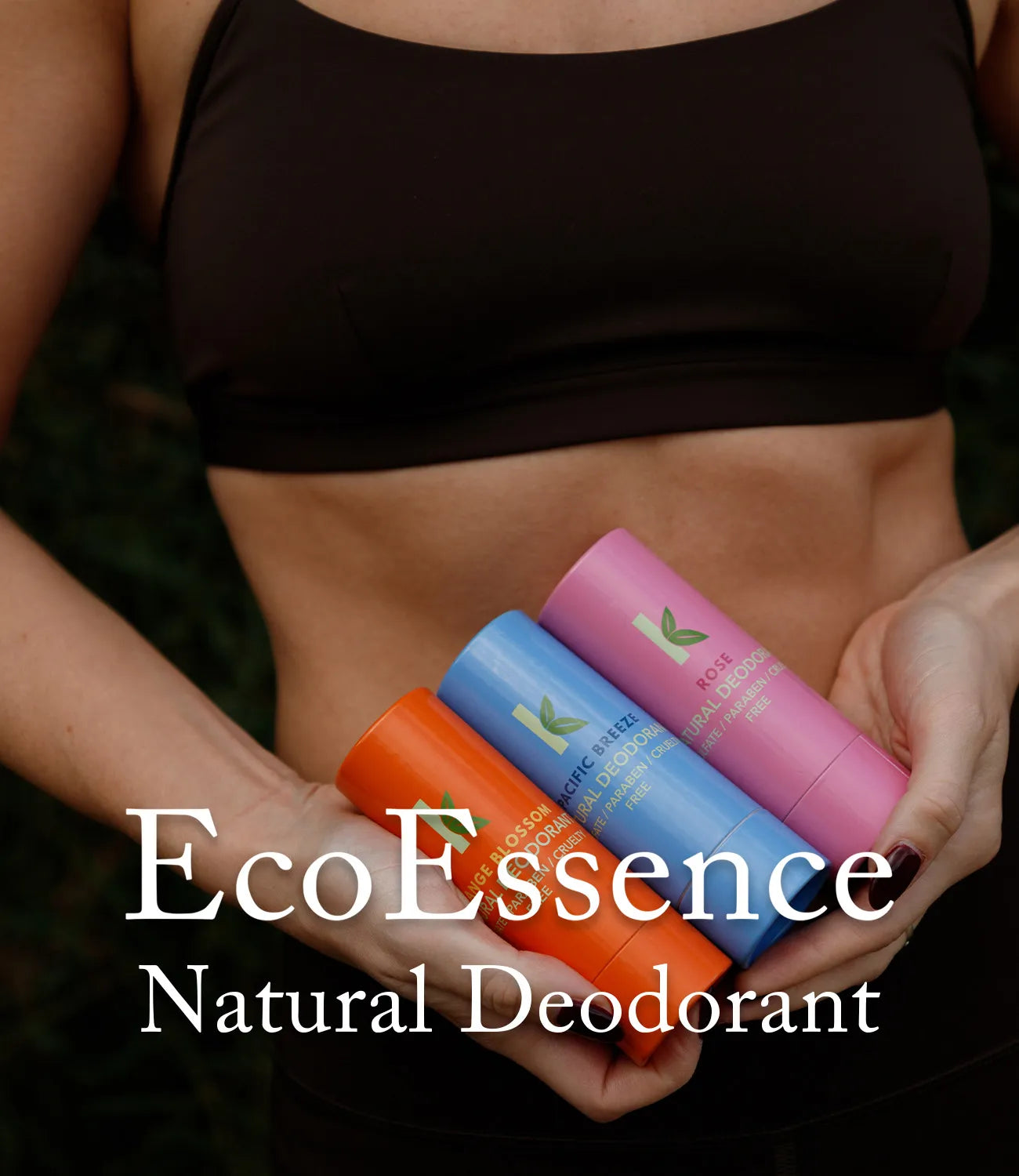Are Bamboo Towels a Smart Eco Swap?
While we know that traditional tree-based paper towels are not environmentally friendly we also know that we use paper towels every day. We may wonder if bamboo paper towels are really better. It turns out that growing and harvesting bamboo has fewer negative impacts on the environment than harvesting trees. It also turns out that fewer chemicals need to be used to make bamboo paper towels. After doing some research we can be confident in the fact that switching from paper towels to bamboo paper towels is an excellent way for us to have an eco-friendly household.
The Remarkable Bamboo Phenomenon
Bamboo, a versatile and rapidly renewable resource, has emerged as a front-runner in the quest for sustainable alternatives to traditional materials. This remarkable plant, belonging to the grass family, is known for its exceptional growth rate. How fast does bamboo grow? Some species capable of growing up to 91 cm (35 in) within a 24-hour period. Bamboo's swift growth cycle and ability to regenerate without the need for replanting make it an incredibly sustainable choice. Unlike hardwood trees that take decades to mature, bamboo reaches harvesting maturity in just three to five years, significantly reducing the time gap between planting and utilization. Moreover, bamboo plants boast a robust root system that remains intact even after harvesting, aiding in soil stability and preventing erosion. This characteristic also makes bamboo a champion of carbon sequestration, as it continues to absorb carbon dioxide from the atmosphere throughout its life cycle, contributing positively to carbon footprint reduction efforts. Its natural resilience means that bamboo can thrive without the use of pesticides or fertilizers, further minimizing its environmental impact compared to conventional wood sources. As a material, bamboo is not only strong and durable but also has a lower ecological footprint, making it a highly appealing alternative for eco-conscious manufacturing, particularly in the realm of paper products such as paper towels. The shift towards bamboo paper towels is a reflection of a growing awareness and desire for products that align with environmental stewardship and sustainability without compromising on functionality and quality.
Bamboo Makes For A Better Paper Towel
Traditional paper towels, while convenient, cast a significant environmental shadow, primarily due to their contribution to deforestation and resource-intensive manufacturing processes. The production of these conventional paper products begins in the forest, where vast tracts of trees, often from old-growth forests, are felled. This deforestation not only disrupts ecosystems and biodiversity but also contributes to the alarming issue of climate change, as trees, which are natural carbon sinks, are removed. The journey from tree to towel is resource-heavy, involving large amounts of water and energy. It's estimated that producing one ton of paper towels requires about 17 trees and over 20,000 gallons of water — a substantial ecological footprint. Furthermore, the use of bleaching agents and other chemicals in the process adds to the environmental burden, releasing harmful substances into waterways and contributing to pollution.
In stark contrast, bamboo paper towels offer a more sustainable narrative. The manufacturing of bamboo paper towels starts with the harvest of bamboo, a process that is less invasive and more sustainable than traditional logging. Bamboo's ability to regenerate quickly and grow densely reduces the need for extensive land use and mitigates the impact on biodiversity. In terms of resource consumption, the production process of bamboo paper towels is generally more efficient. Bamboo's natural properties mean that less water and energy are required to break down the fibers compared to wood pulp, and the process often foregoes the harsh chemicals typical in conventional paper towel manufacturing. This results in a lower overall environmental impact, from reduced water and energy consumption to a decrease in chemical pollution. The transition from traditional paper towels to those made from bamboo is a reflection of a growing commitment to environmental responsibility — an acknowledgment that even everyday products must align with the principles of sustainability and conservation.
How Often Do We Use Paper Towels?
Annually, the consumption of paper towels in the United States reaches a staggering 13 billion pounds, translating to an average of 80 rolls per individual. This figure paints a concerning picture of environmental impact, primarily due to the extensive deforestation required to meet this demand. To produce these vast quantities of paper towels, an immense number of trees are harvested every year, disrupting natural ecosystems, reducing biodiversity, and contributing to the increasing problem of climate change. Trees, which play a crucial role in absorbing carbon dioxide, are being cut down at an alarming rate for what is essentially a single-use convenience. This situation is further exacerbated by the packaging of these products. The majority of traditional paper towels are wrapped in plastic, which adds to the already significant problem of plastic waste. This plastic packaging, often non-recyclable and non-biodegradable, ends up in landfills, oceans, and other natural environments, posing a threat to wildlife and further polluting our planet.
The ecological footprint of standard tree-based paper towels is thus twofold: the depletion of vital forest resources and the generation of plastic waste. However, this presents us with a substantial opportunity for positive change. By shifting our consumption habits towards more environmentally friendly paper towel alternatives, we can significantly reduce our ecological impact. Opting for sustainable options, such as those made from bamboo or recycled materials, not only lessens the strain on our forests but also often comes with more eco-conscious packaging choices. This simple switch in our daily routines can lead to a considerable reduction in our homes' environmental footprint, fostering a more sustainable lifestyle and a healthier planet. Embracing eco-friendly paper towels is a tangible step towards mitigating the dual challenges of deforestation and plastic pollution, paving the way for a more responsible and sustainable future.
Environmental Costs of Paper Towels Made from Trees
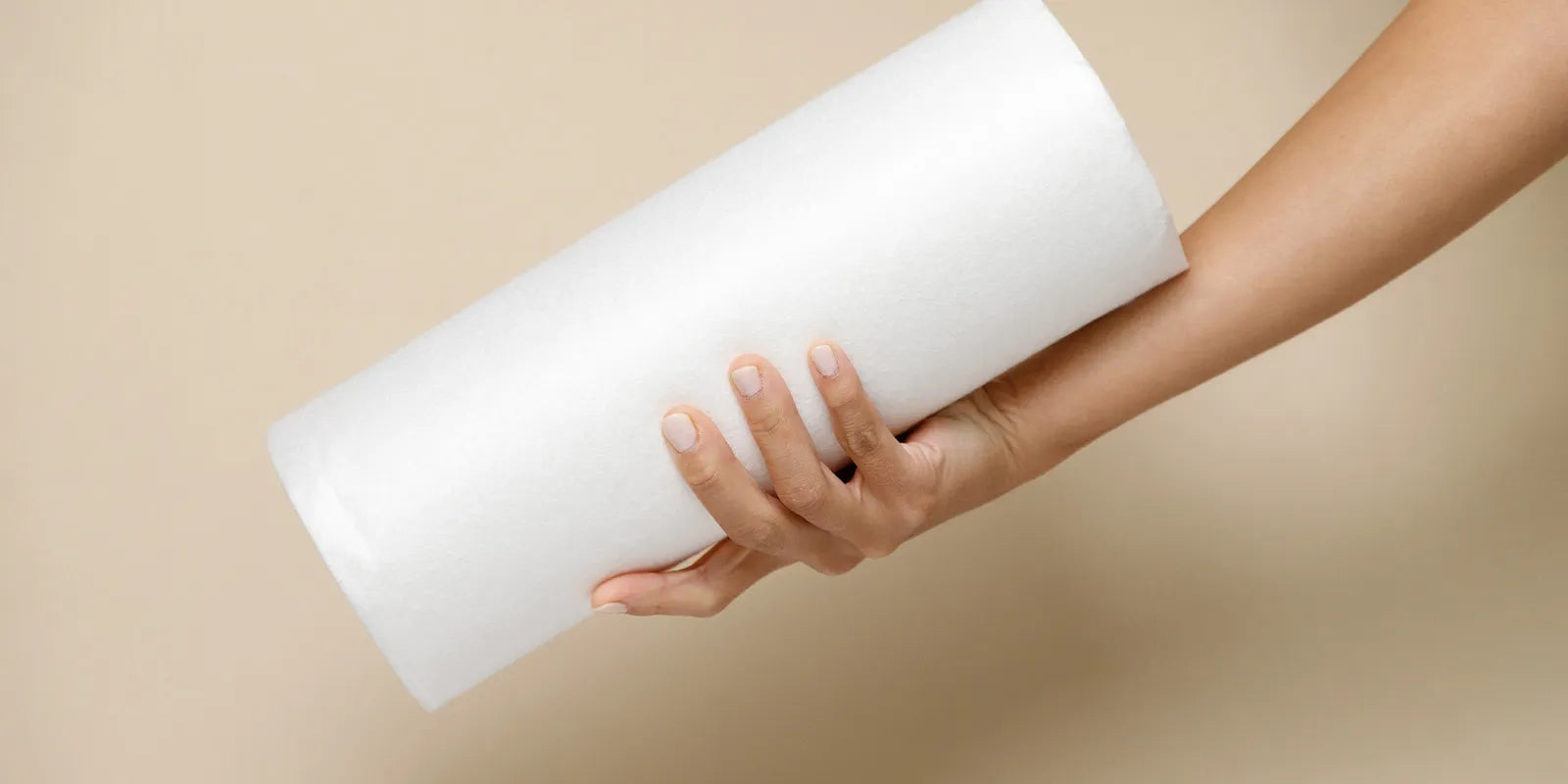
The journey of converting trees into the paper towels that line our kitchen counters is fraught with environmental concerns, primarily due to the use of various toxic chemicals in the manufacturing process. These chemicals, essential for breaking down wood into paper, often find their way into our water systems, leading to contamination that extends far beyond the confines of the paper mills. The impact of these pollutants on aquatic life and the wider ecosystem is profound, affecting the delicate balance of natural habitats and posing health risks to both wildlife and humans. This contamination cycle contradicts the very purpose of paper towels, which are used to clean and maintain hygiene in our homes yet inadvertently contribute to environmental degradation.
Moreover, the common practice of paper mills maintaining their own tree plantations does little to alleviate the environmental strain. These commercial plantations typically involve fast-growing tree varieties, but even these cannot keep pace with the relentless demand for paper products. The result is a constant depletion of tree resources, contributing to deforestation and the loss of biodiversity. It's a cycle that raises a crucial question for environmentally conscious consumers: How can we continue to maintain cleanliness in our homes without exacerbating these ecological issues? The answer lies in seeking alternative products that align with both our domestic needs and our environmental responsibilities.
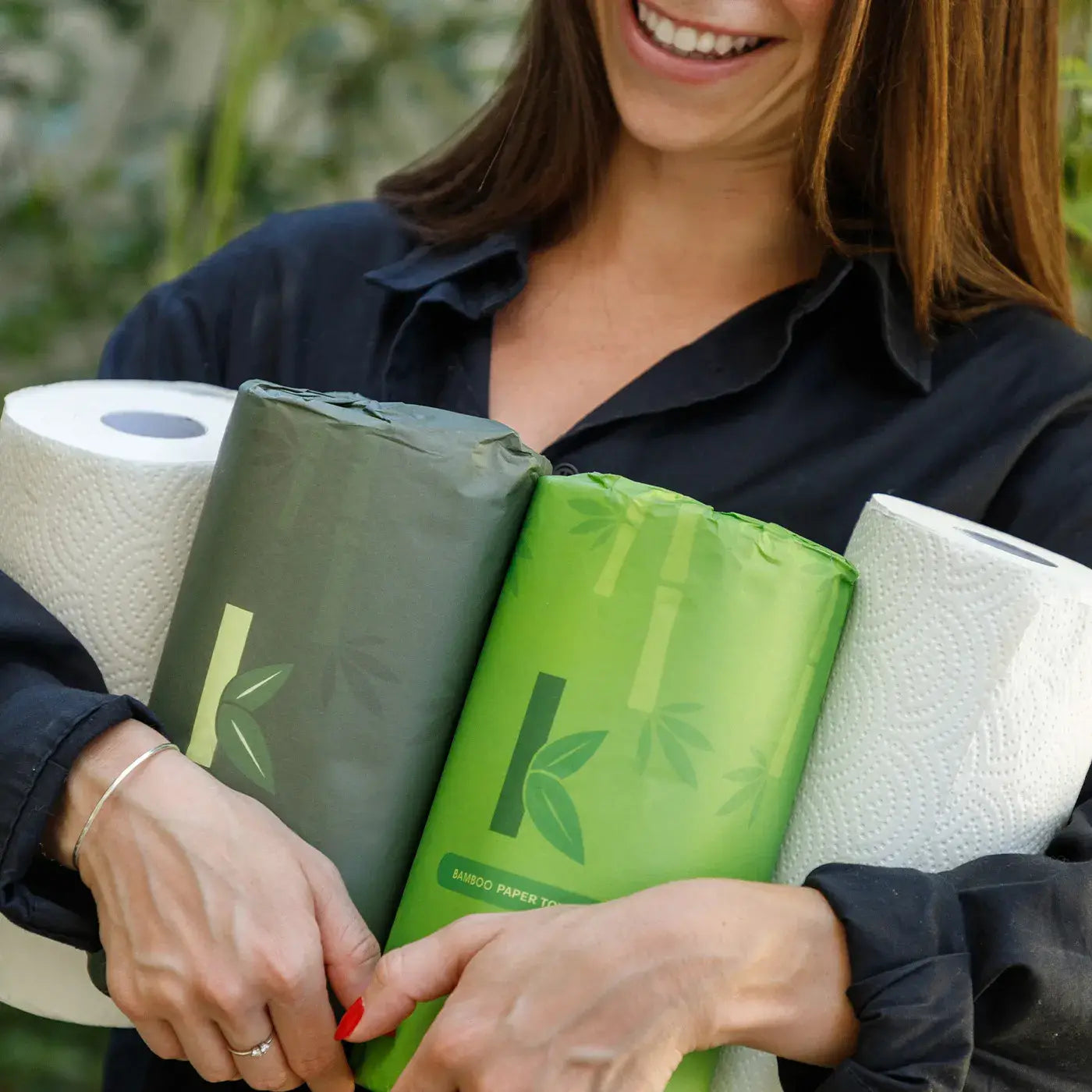
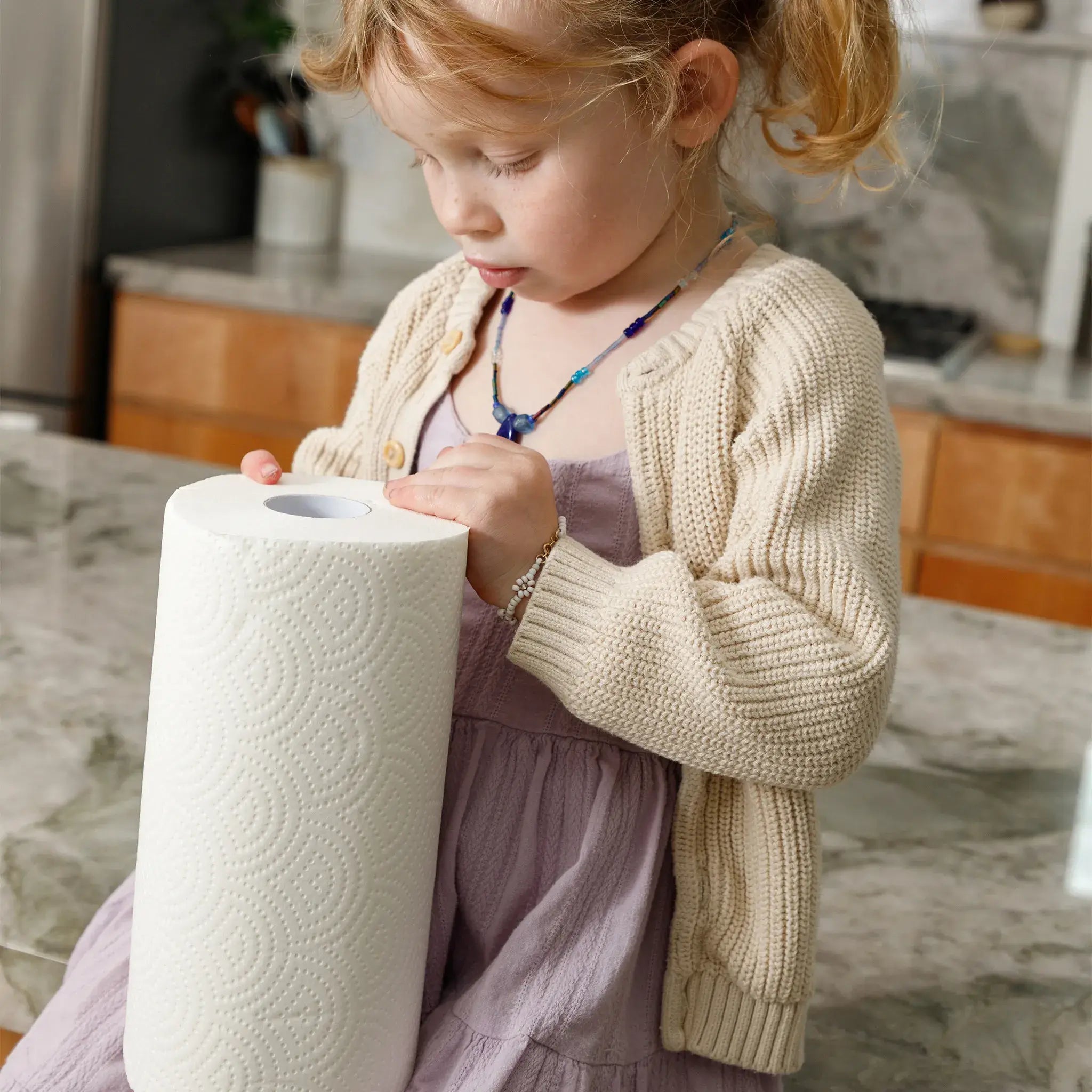
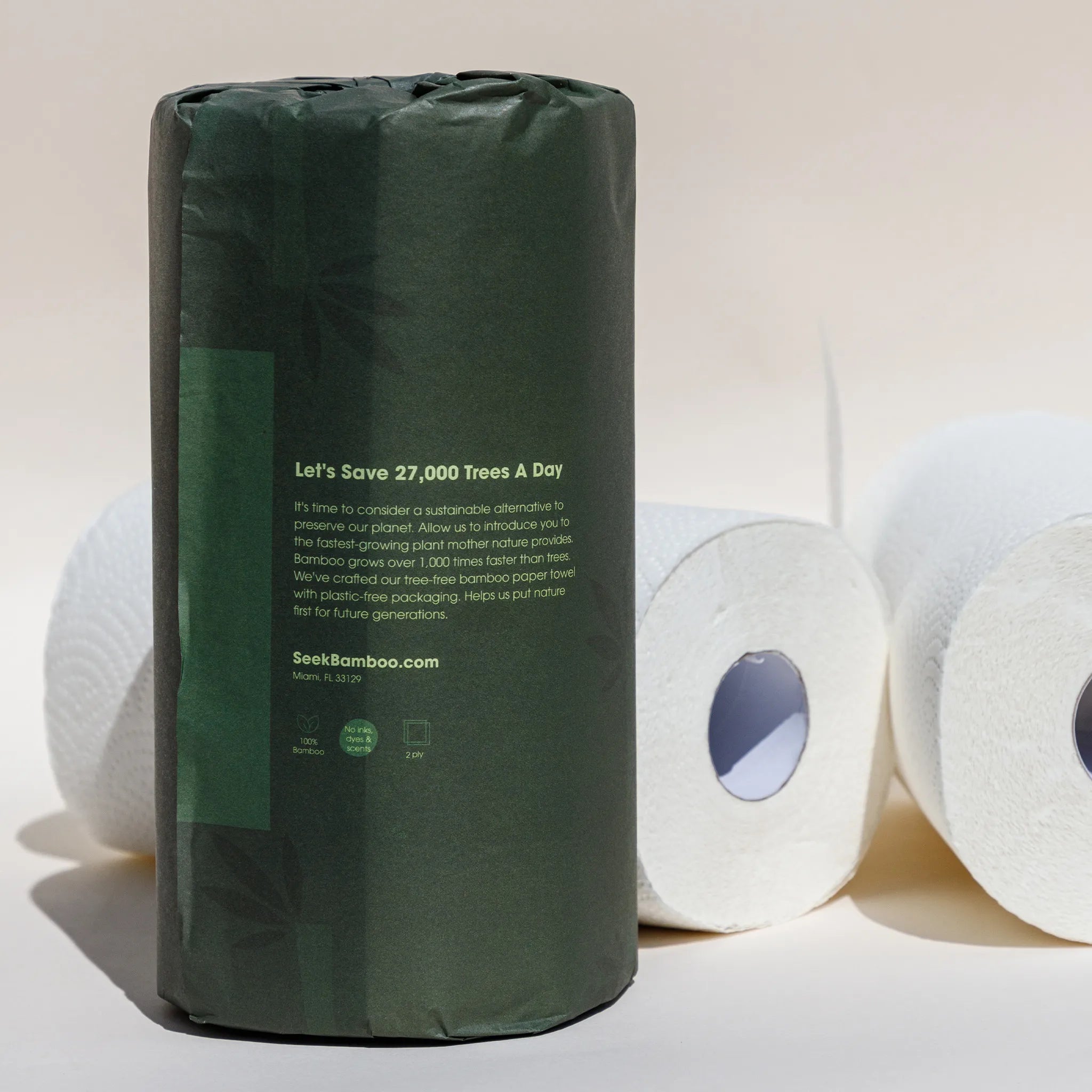
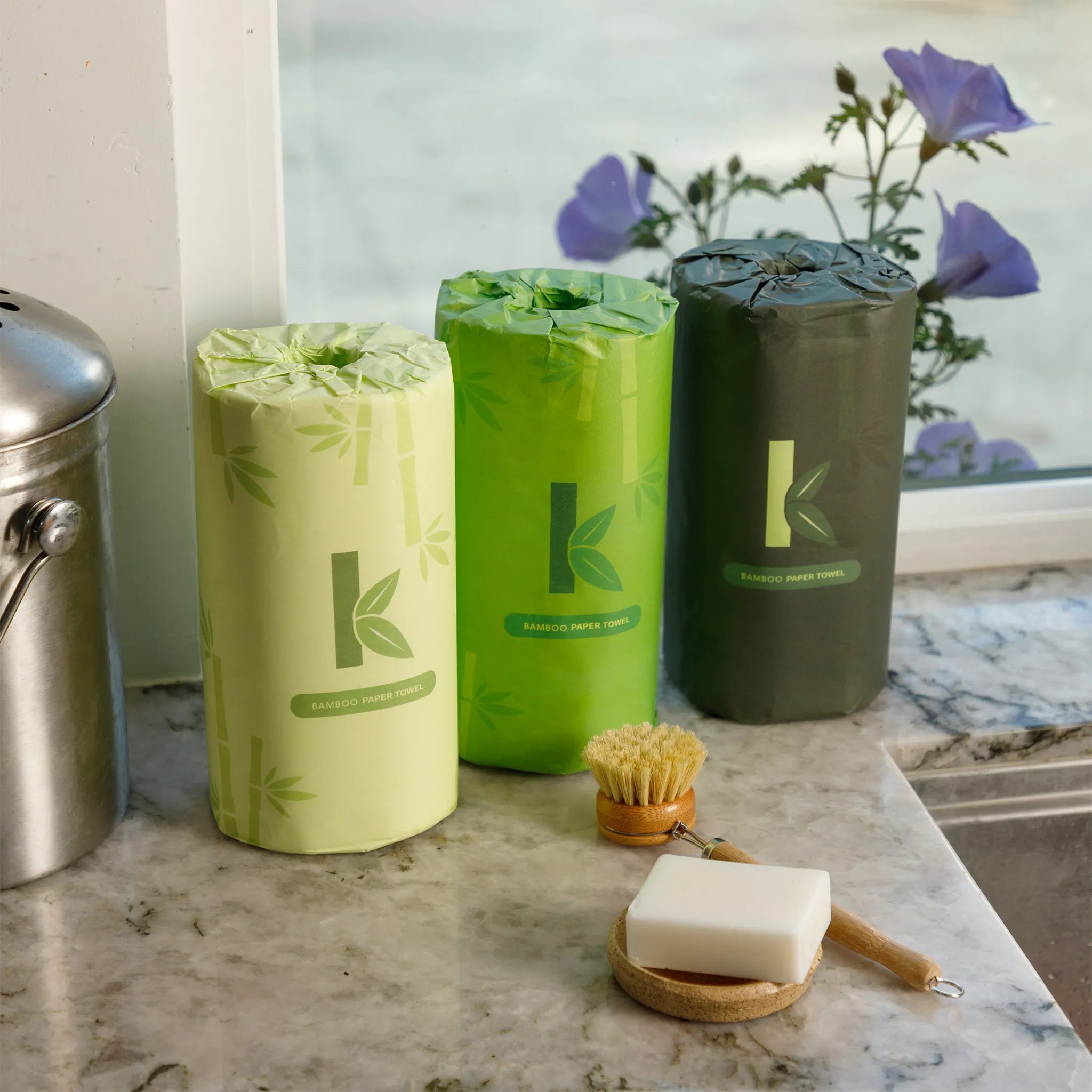
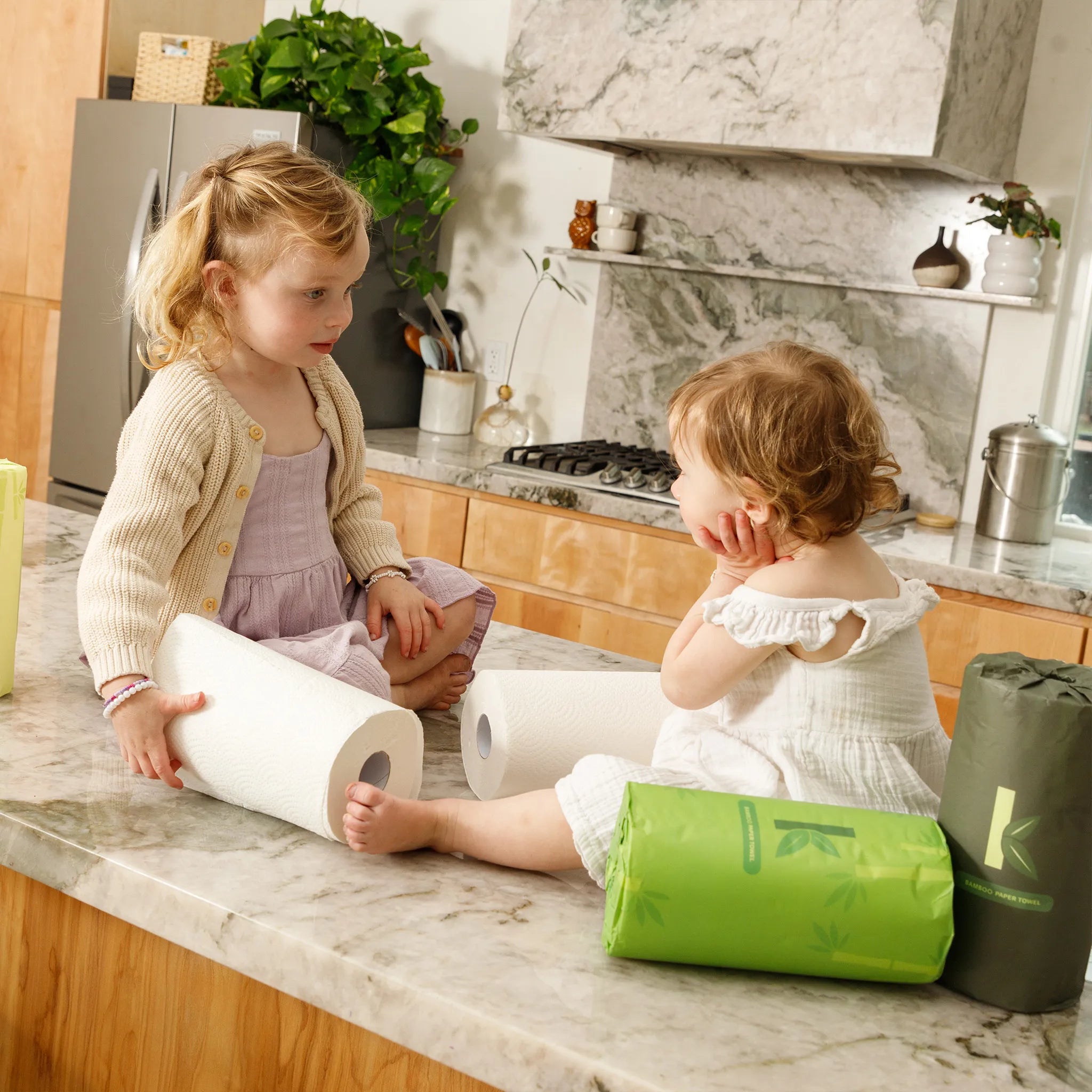
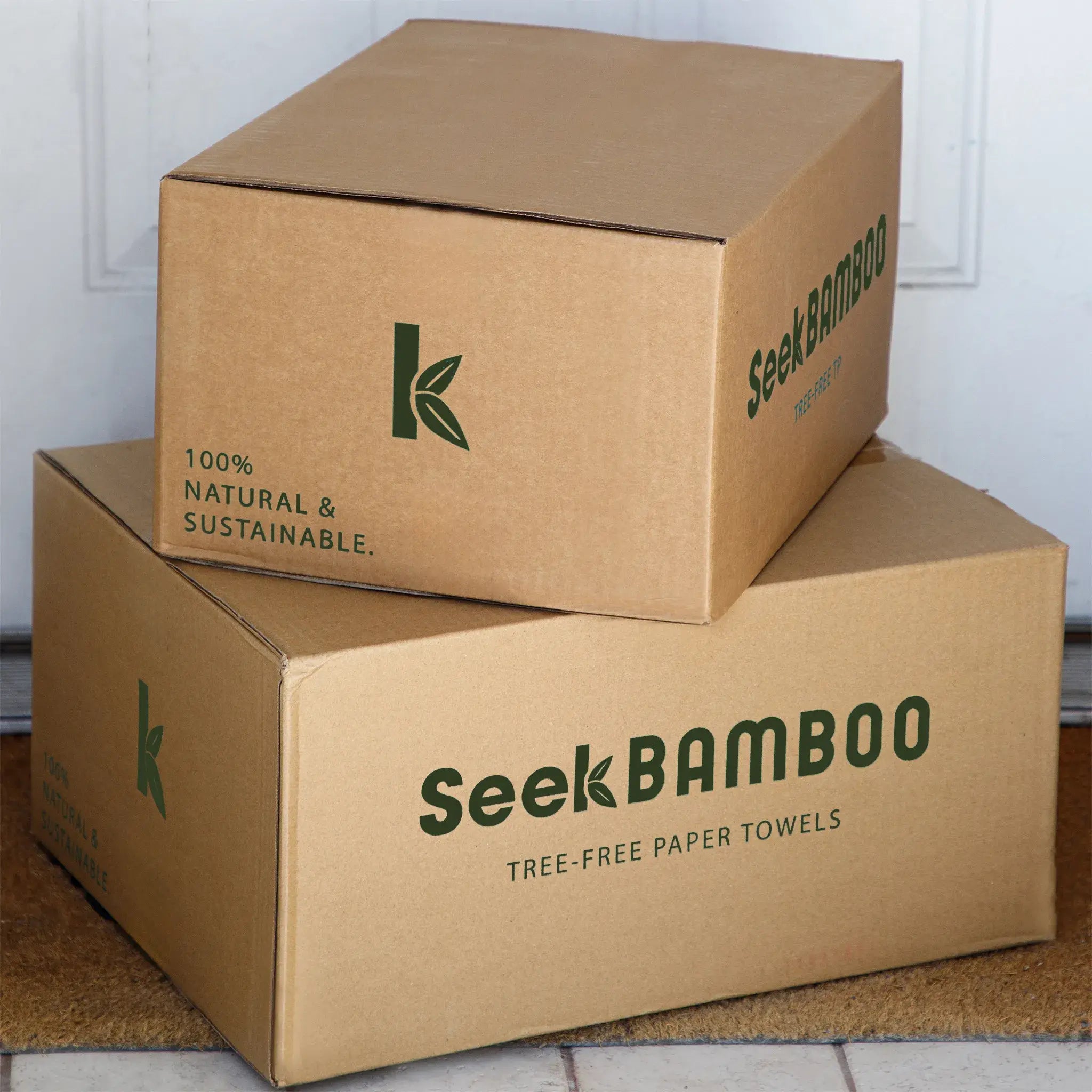
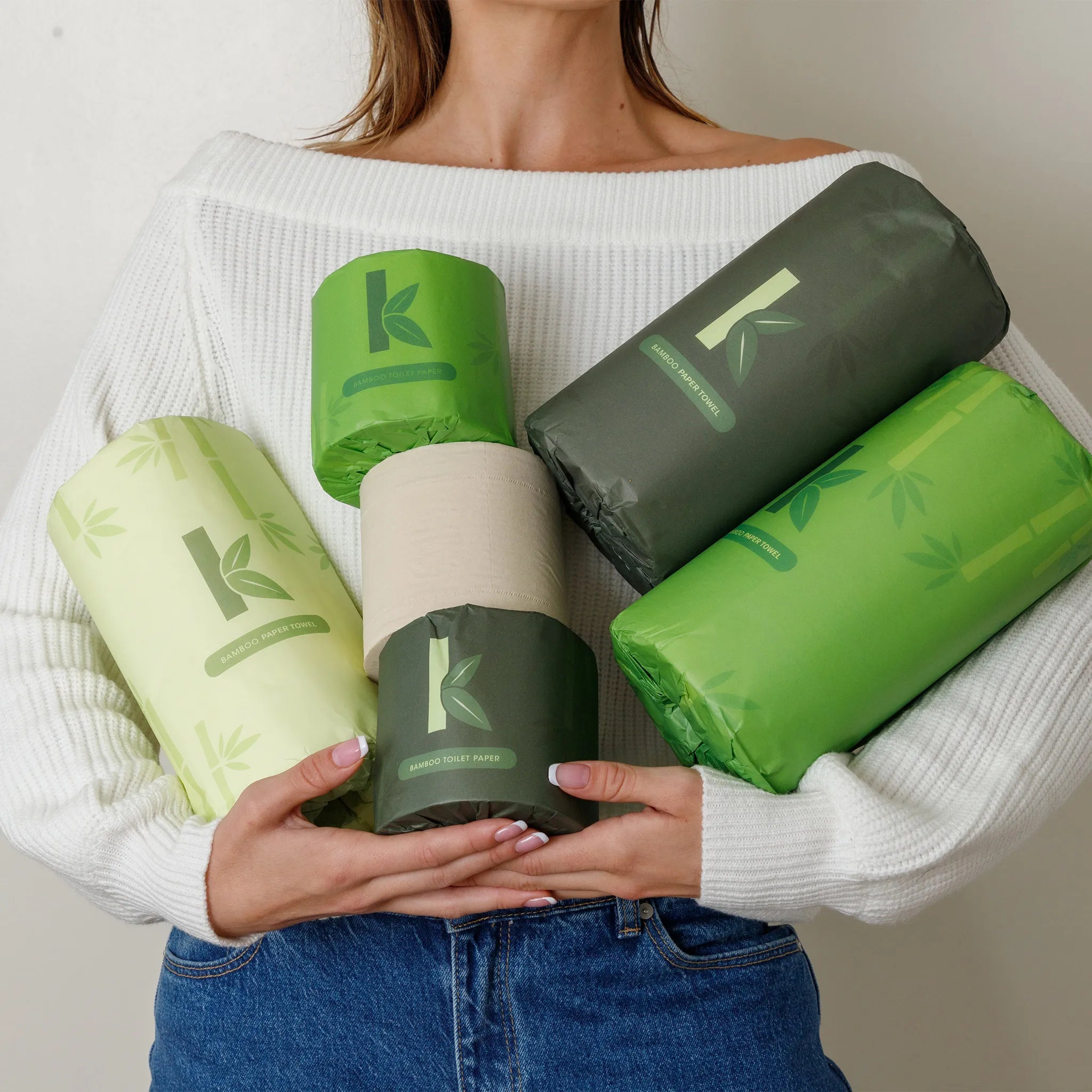
Bamboo Paper Towels are Environmentally Friendly
Bamboo paper towels stand out as a markedly more environmentally friendly alternative to traditional paper towels, a distinction rooted in the inherent eco-friendliness of bamboo as a resource. Unlike the tree pulp used in conventional paper towels, bamboo offers a greener and more sustainable solution for paper production. Primarily cultivated in the lush tropical climates of Asian countries, bamboo is an incredibly resource-efficient plant. Its rapid growth rate is a key environmental advantage; certain species of bamboo can grow up to three feet within a single day. This extraordinary growth pace means bamboo reaches maturity and can be harvested in a fraction of the time it takes for trees to grow to a usable size — often just three to five years compared to the decades required for trees.
This faster cycle of growth and harvest allows for more efficient and sustainable management of resources, as bamboo plantations can quickly replenish themselves without the need for extensive land clearing. Furthermore, bamboo’s cultivation has a considerably lower ecological footprint. One of the most notable benefits of bamboo in the production of bamboo paper towels is its minimal need for chemical intervention. Bamboo thrives naturally without the reliance on harmful fertilizers and pesticides, which are often heavily used in traditional tree farming and have detrimental effects on soil health and local waterways. This absence of chemical additives not only makes bamboo a cleaner crop but also reduces the risk of environmental pollution associated with agricultural runoff.
Bamboo Paper Towels are Renewable
In the quest for more sustainable living, bamboo emerges as a shining example of nature's ingenuity, offering us a renewable resource that is transforming the way we think about everyday products. Among its many applications, bamboo has made a particularly impactful entry into the world of household cleaning with bamboo paper towels. These innovative products not only harness the ecological benefits of bamboo's rapid growth and regenerative properties but also introduce the concept of reusability in a domain traditionally dominated by single-use items. Bamboo paper towels and their reusable counterparts represent a significant leap forward in our efforts to balance convenience with environmental responsibility. By turning to bamboo, we tap into a resource that grows quickly, replenishes easily, and leaves a minimal ecological footprint, all while providing us with products that meet our needs without compromising the health of our planet.
Bamboo Paper Towels
Bamboo paper towels represent a significant advancement in sustainable household products, showcasing bamboo as one of our planet's most remarkable renewable resources. Unlike traditional paper towels made from trees, which contribute to deforestation and longer regeneration cycles, bamboo offers a vastly more sustainable and environmentally friendly alternative. Bamboo's rapid growth rate and ability to regenerate quickly without the need for replanting make it an ideal source for paper products. This grass plant can be harvested in as little as three to five years, compared to decades for trees, significantly reducing the ecological impact of paper towel production. Additionally, bamboo’s natural resilience means it can be cultivated in diverse environments, including regions suffering from deforestation, aiding in ecological restoration efforts. By choosing bamboo paper towels, consumers not only minimize their impact on forest depletion but also support sustainable agricultural practices.
Reusable Bamboo Paper Towels
In the realm of eco-friendly products, reusable bamboo paper towels take sustainability a step further. Moving beyond the single-use paradigm of traditional paper towels, these reusable alternatives offer a practical solution to reduce waste significantly. Crafted from the durable fibers of bamboo, these towels can withstand multiple uses and washes, retaining their strength and absorbency over time. This durability translates to fewer towels needed and a substantial decrease in the household waste stream. Reusable bamboo towels embody the principles of a circular economy, where products are designed to have a prolonged lifecycle, reducing the need for constant disposal and production. By integrating reusable bamboo paper towels into daily routines, consumers actively contribute to waste reduction and resource conservation, aligning their household practices with a more sustainable and environmentally conscious lifestyle.
Bamboo Paper Towels are Compostable
Bamboo paper towels stand out not only for their sustainability in production but also for their end-of-life environmental impact, being 100% biodegradable. This characteristic sets them apart from traditional paper towels, offering a greener disposal option. Composting emerges as the most eco-friendly method to handle used bamboo paper towels. When composted, these towels break down naturally, returning to the earth without leaving harmful residues, thereby enriching the soil instead of contributing to pollution. However, it's crucial to ensure that the bamboo paper towels being composted are free from synthetic chemicals and only contain organic materials.
This vigilance is particularly important if the towels have been used to clean up substances that aren't compost-friendly, such as paints, oils, or grease. In such cases, these towels should be disposed of through alternative means that prevent environmental contamination. This mindful disposal approach starkly contrasts with the traditional practice of discarding paper towels in the garbage, which leads to them ending up in landfills. In landfills, even biodegradable items like bamboo paper towels struggle to decompose properly due to the lack of necessary air and moisture. This incomplete degradation process can lead to the release of methane, a potent greenhouse gas, exacerbating the environmental issues we aim to mitigate. Therefore, by opting for composting clean bamboo paper towels, we contribute to a more sustainable cycle of use and disposal, significantly reducing our ecological footprint and promoting a more environmentally conscious approach to everyday waste management.
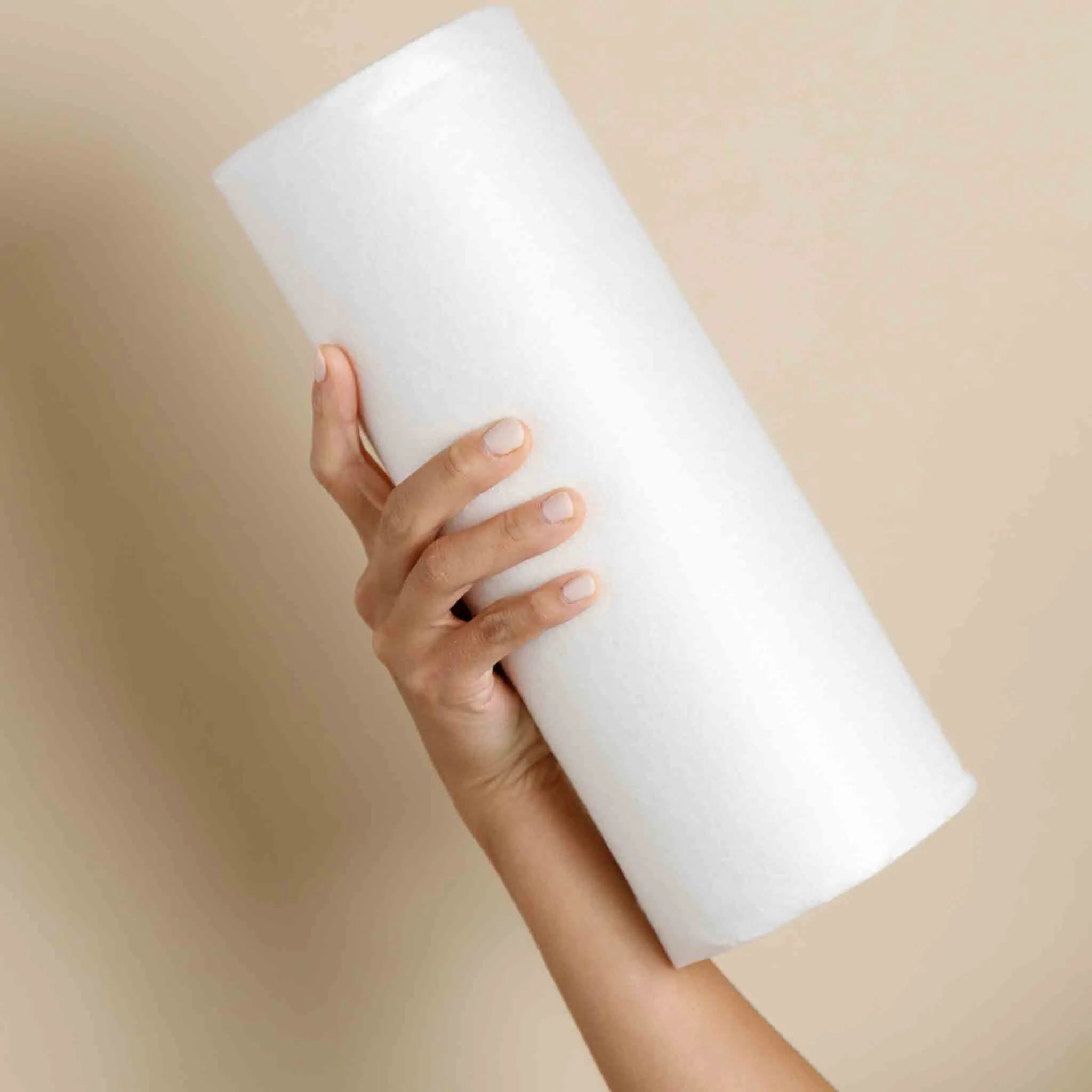

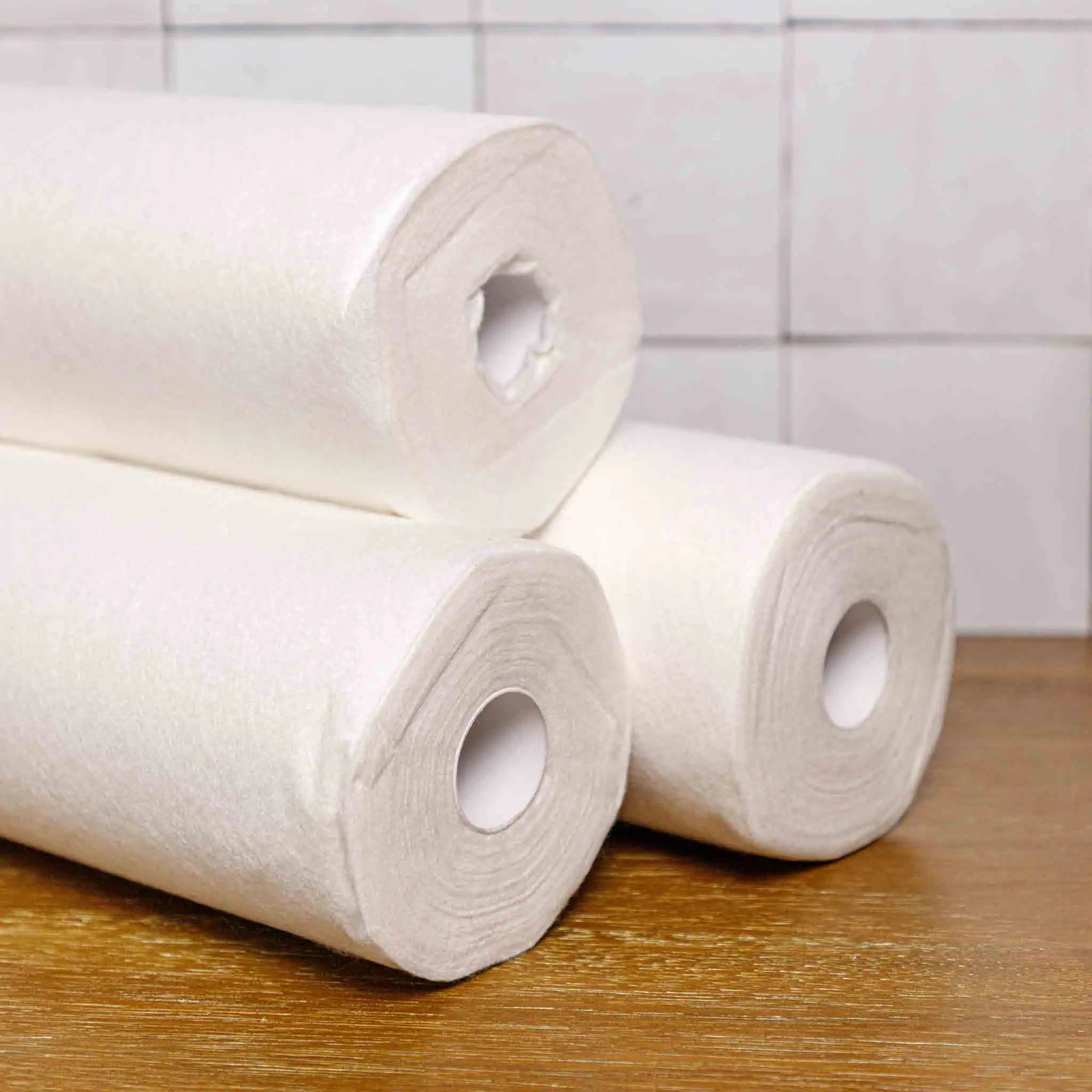
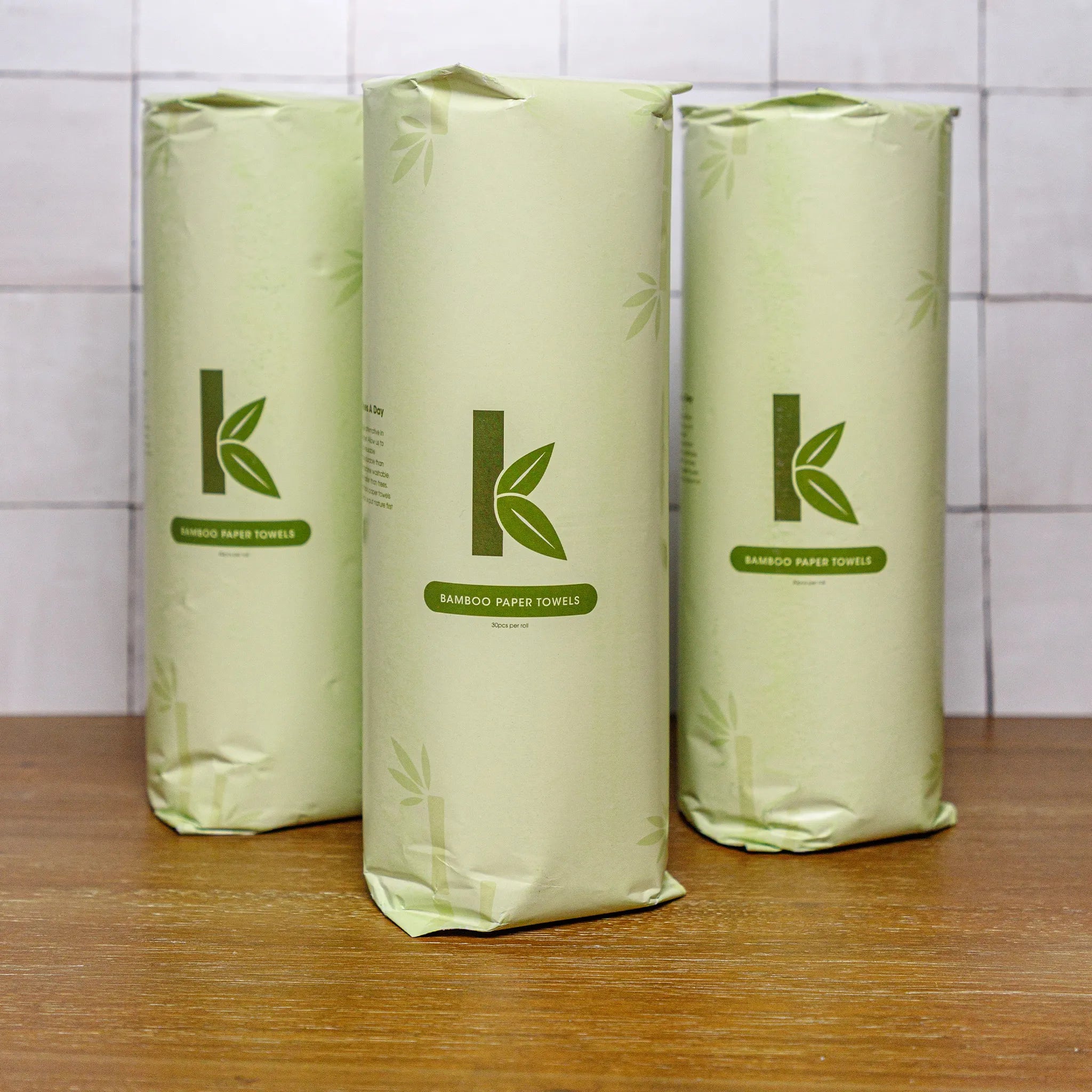
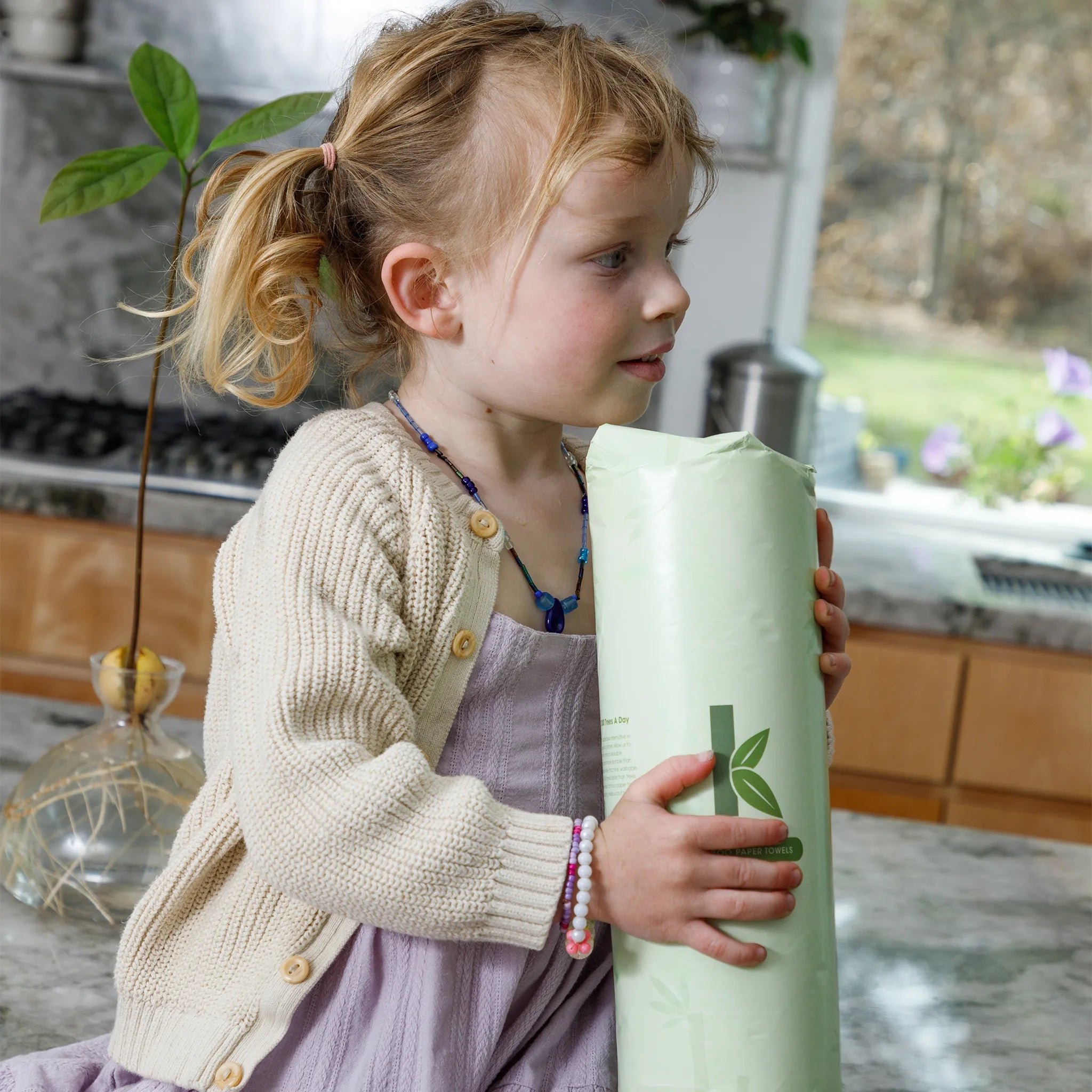
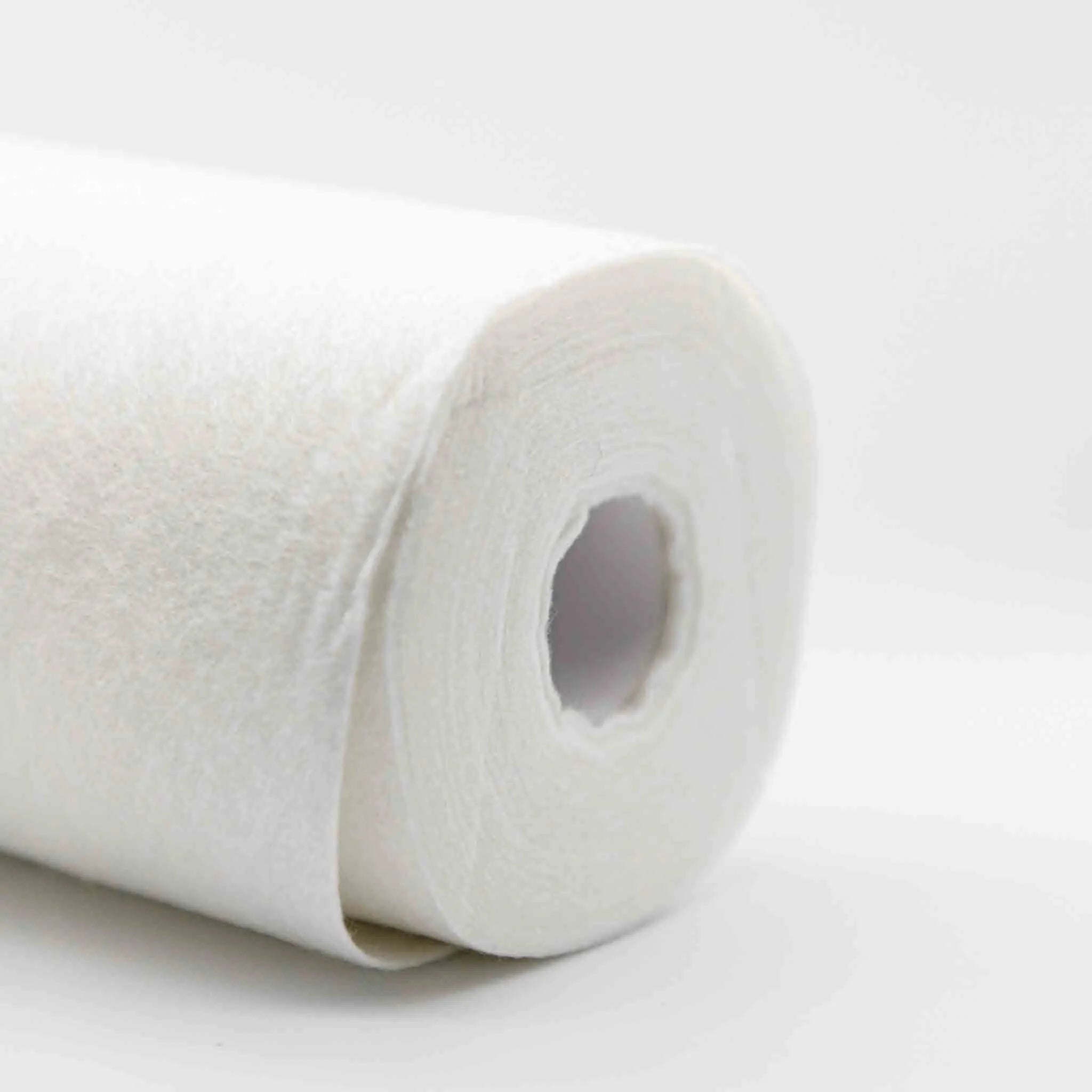
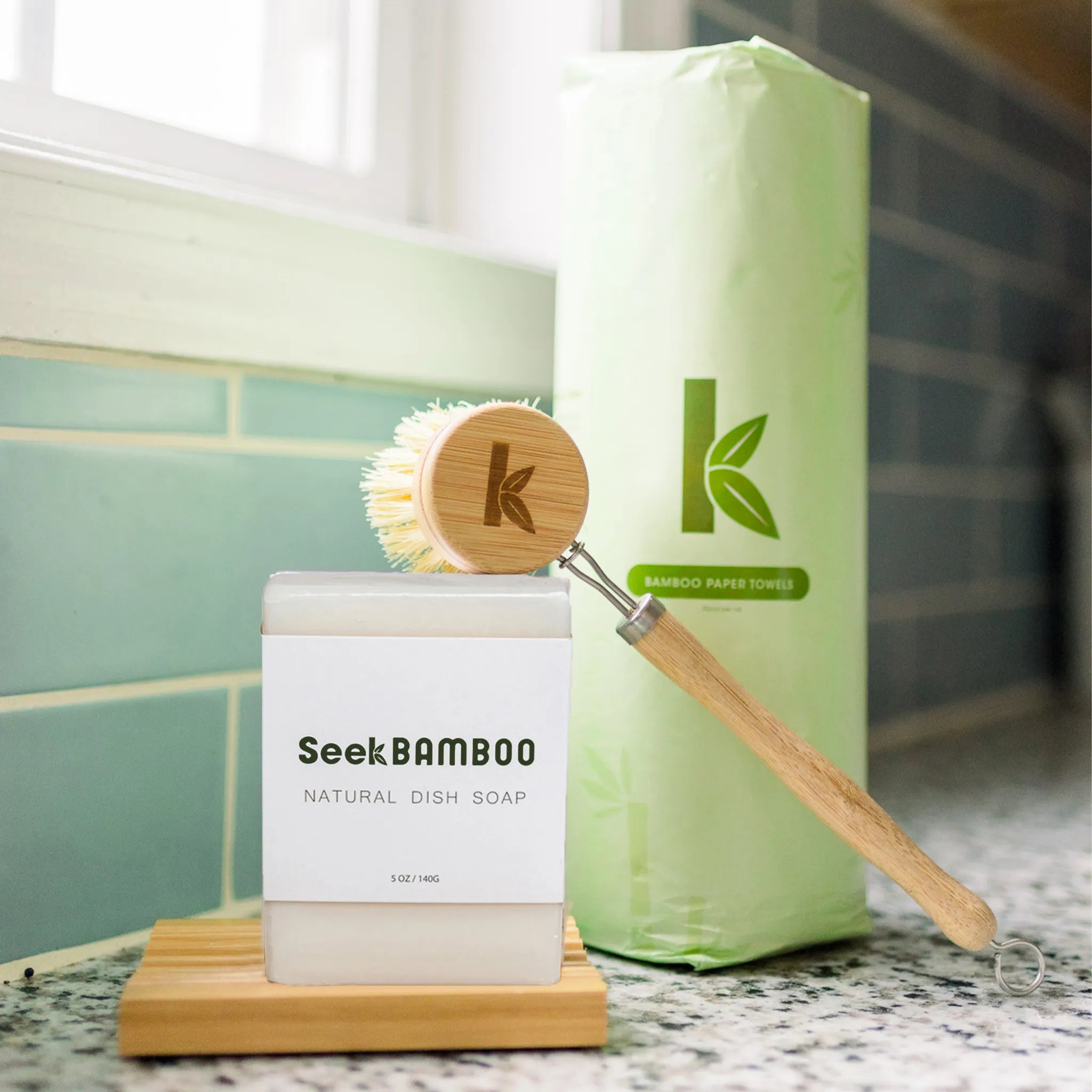
We Save Money by Using Bamboo Reusable Paper Towels:
Embracing reusable bamboo paper towels presents a remarkable opportunity for both environmental conservation and practical home management. A mere two rolls of these innovative towels have the potential to replace the usage of traditional paper towels for a period ranging from six to twelve months. This switch has a profound impact on our natural resources. Consider the multitude of trees that are spared from being cut down, as each roll of conventional paper towels contributes to the ongoing issue of deforestation. By opting for reusable bamboo alternatives, we significantly reduce the demand for tree-based products, thereby contributing to the preservation of forests and the biodiversity they support.
Beyond the environmental benefits, there's a notable convenience factor. The need to continually purchase and store bulky rolls of paper towels becomes a thing of the past. For most of us, storing rolls of paper towels isn’t just a space-consuming inconvenience; it's hardly an aesthetic choice we'd make for our homes. Reusable bamboo towels, with their sleek and minimalistic design, sidestep this issue, blending functionality with a more visually appealing approach to kitchen essentials.
Moreover, the ease of maintaining these reusable towels adds to their appeal. Crafted to be machine washable, they can be easily cleaned and returned to service with minimal fuss. This hassle-free maintenance undermines any reservations about switching to a more sustainable option. The simplicity of throwing used towels into the washing machine rather than the trash bin embodies a significant shift in how we approach everyday cleaning tasks. It’s a shift that aligns with a growing consciousness about sustainable living, where each small choice, like trying out reusable bamboo paper towels, becomes a step towards a more environmentally responsible and resource-efficient lifestyle.
Bamboo Reusable Paper Towels Are Excellent
Thus, the next time we spill something in the kitchen, work on an art project, or do some seasonal deep cleaning, instead of reaching for a standard paper towel with all of the associated unpalatable consequences, we should reach for a reusable bamboo paper towel. Bamboo paper towels are better for the environment, our wallets, and our ability to keep our homes clean and orderly. With so many advantages, there is no reason why we should not transition to bamboo paper towels for all of our paper towel requirements. Bamboo paper towels are just one of many environmentally friendly things we can use to keep our houses clean.
Bamboo Paper Towels Unraveled
The Lowdown on Eco-Friendly Paper Towels
What Makes Paper Towels Eco-Friendly?
Eco-friendly paper towels are distinguished by their sustainable sourcing, manufacturing processes, and disposal methods. They are typically made from renewable resources like bamboo or recycled materials. Unlike conventional paper towels, they require fewer chemicals and water to produce and are often unbleached, reducing their environmental impact. Eco-friendly options are also biodegradable and compostable, minimizing landfill waste.
Are Eco-Friendly Paper Towels as Absorbent as Regular Ones?
Yes, most eco-friendly paper towels are designed to match the absorbency of traditional paper towels. Innovations in manufacturing have enabled products made from recycled materials or bamboo to be highly effective at absorbing spills. While the texture and thickness might vary, the overall functionality is comparable.
Can Eco-Friendly Paper Towels Be Composted?
Many eco-friendly paper towels are compostable, but it’s important to check the product specifications. Compostable paper towels can be added to compost bins, where they break down and contribute to nutrient-rich soil. However, if they are used to clean up chemical spills or grease, they should not be composted due to potential contamination.
How Do Eco-Friendly Paper Towels Impact Deforestation?
Traditional paper towels contribute significantly to deforestation, but eco-friendly alternatives like those made from bamboo or recycled materials have a much smaller impact. Bamboo grows rapidly and can be harvested sustainably, while recycled paper towels use existing paper fibers, reducing the need to cut down trees.
Are Eco-Friendly Paper Towels More Expensive?
Initially, eco-friendly paper towels may cost slightly more than regular ones, but this gap is narrowing. Additionally, considering their environmental benefits and the potential to reduce overall consumption (especially in the case of reusable options), they can be cost-effective in the long run.
What’s the Difference Between Recycled and Bamboo Paper Towels?
Recycled paper towels are made from post-consumer paper waste, reducing the need for virgin wood pulp. Bamboo paper towels, on the other hand, are made from bamboo fibers. Bamboo is a fast-growing, renewable resource that requires fewer resources to grow and process. Both types offer environmental advantages over traditional paper towels.
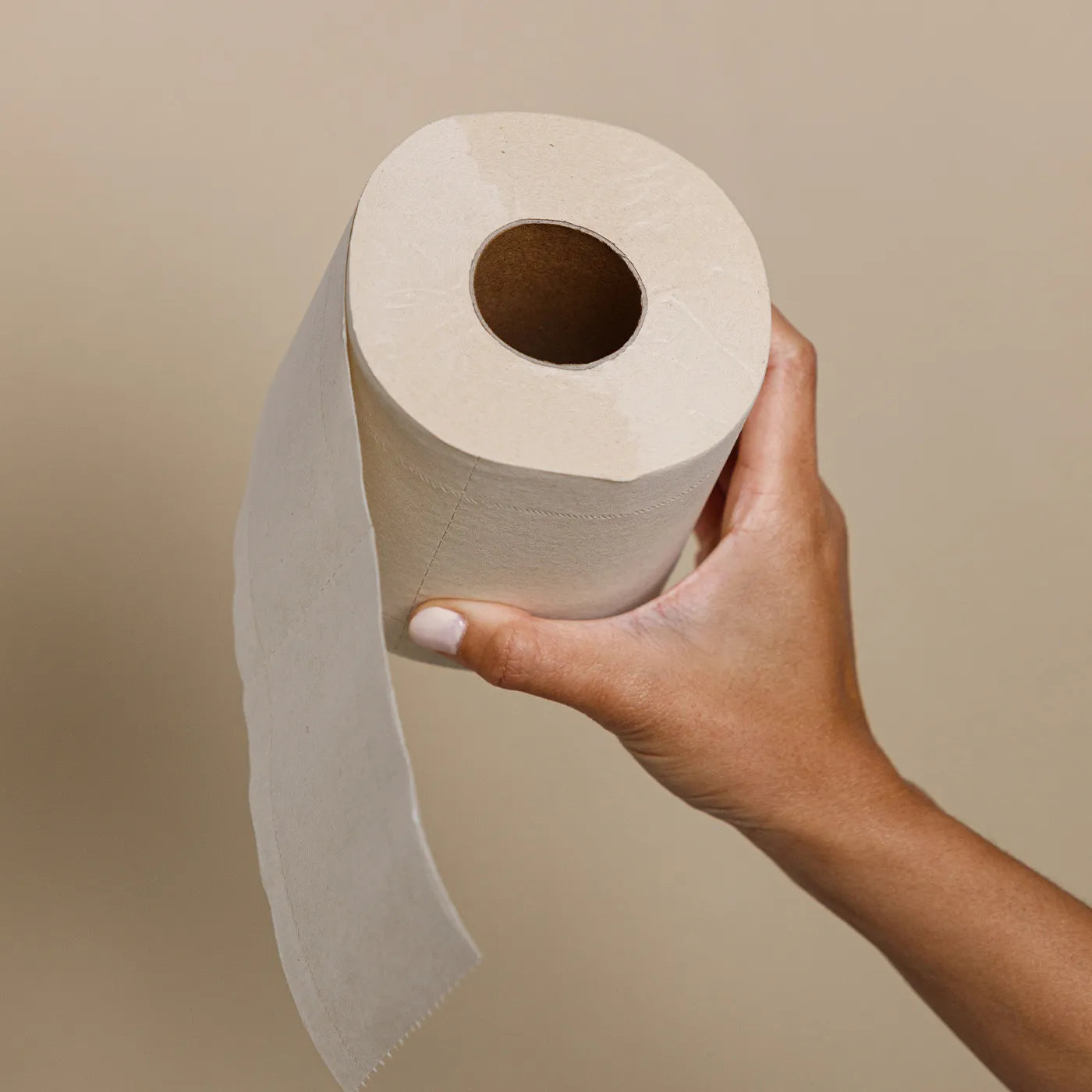
Everything Bamboo Toilet Paper
Discover why bamboo toilet paper is the eco-friendly choice that's soft on you and the planet.
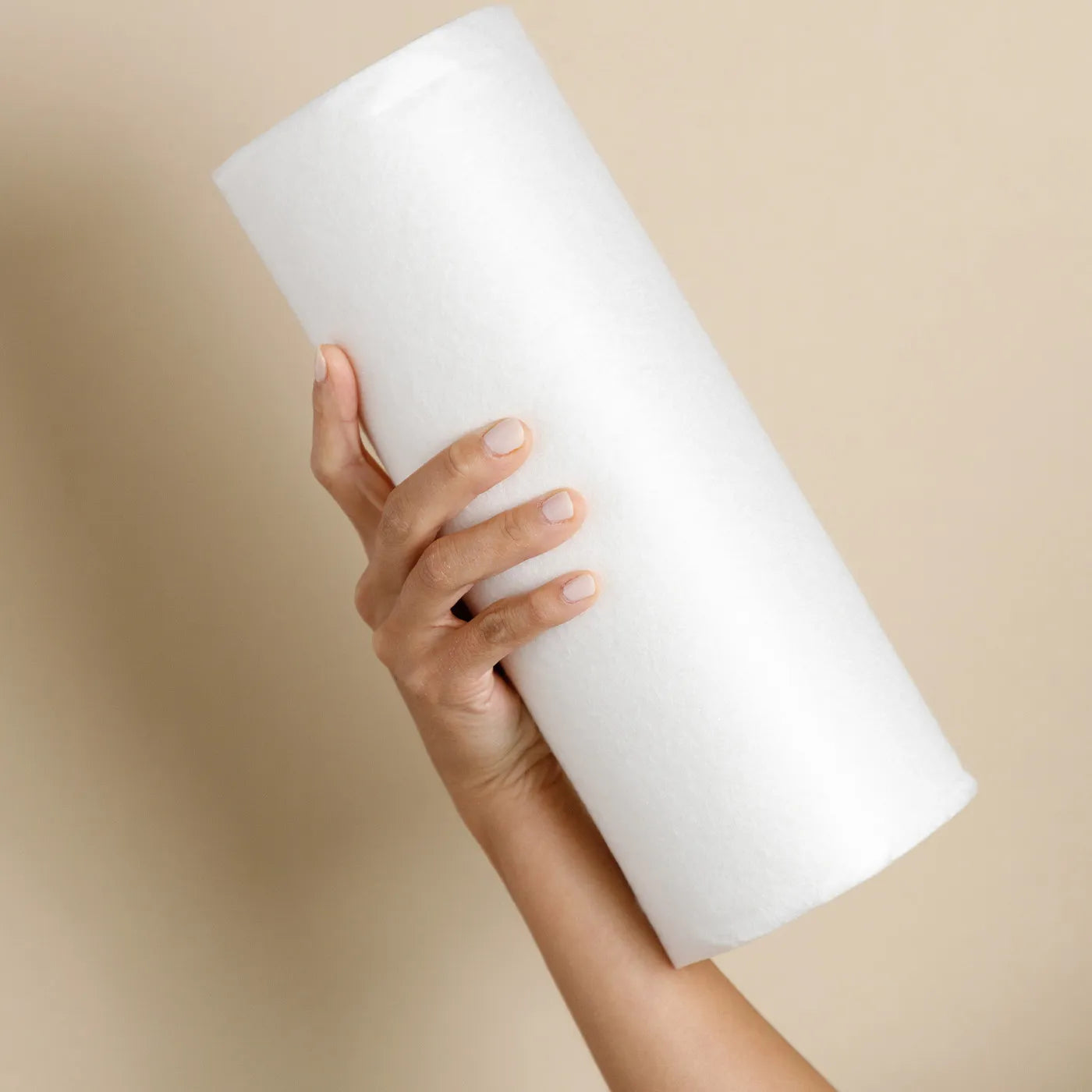
Transform Your Kitchen
Say goodbye to waste and hello to sustainability with reusable paper towels.


